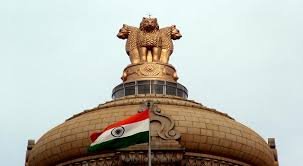This judgment from the Supreme Court of India clarifies the legal standing of a proprietorship concern in a lawsuit, particularly regarding its ability to be sued and represented. The case stemmed from an eviction suit filed by the appellants against a lessee, Aditya Motors, a sole proprietorship concern of Pilla Durga Prasad (P.D. Prasad).
A registered lease deed dated 13th April, 2005, leased premises from the appellants to Aditya Motors. After the lease expired and the premises were not vacated, the appellants filed an eviction suit under Section 106 of the Transfer of Property Act, 1882.
Party Amendment: Initially, M/s. Associated Auto Services Pvt. Ltd. was impleaded as defendant no.1, with Pilla Durga Prasad as defendant no.2. An application was filed by the appellant to delete the original defendant no.1 (lessee-defendant no.1) and substitute Pilla Durga Prasad as the representative of the lessee, changing the cause title to Dogiparthi Venkata Satish and another Vs. Pilla Durga Prasad and others. This amendment was allowed on 28th March, 2018.
Rejection Application: The defendant (Pilla Durga Prasad) later applied under Order VII Rule 11 CPC to reject the plaint, arguing that Aditya Motors was a proprietorship concern and therefore not a “juristic person,” and thus, the original plaint against it should be rejected.
Trial Court Decision: The Trial Court rejected the application to reject the plaint.
High Court Decision: The High Court, in revision, set aside the Trial Court’s order, ruling that a proprietorship concern ought to have been made a party and could be sued.
Law Involved
The key legal provisions discussed in this judgment are:
Order VII Rule 11 of the Code of Civil Procedure (CPC), 1908: This rule pertains to the rejection of a plaint.
Order VI Rule 17 of the CPC: This rule relates to the amendment of pleadings.
Order XXX Rule 10 of the CPC: This is the central provision, dealing with suits against persons carrying on business in a name other than their own. It allows such a person to be sued in the business name or style as if it were a firm name, and applies other rules under Order XXX accordingly.
Order XXX Rule 1 CPC: Mentioned in context of partnership firms, enabling partners to sue or be sued in the firm’s name.
Reasoning
The Supreme Court’s reasoning centered on the legal nature of a proprietorship concern and the interpretation of Order XXX Rule 10 CPC:
Proprietorship is Not a Juristic Person: The Court unequivocally stated that a proprietorship concern is not a juristic person; it is merely a trade name for an individual carrying on business. Therefore, it cannot, in its own name, sue or be sued.
Representation of Proprietor: The Court emphasized that the proprietor is the real party in interest. If the proprietor is impleaded as a party representing the proprietorship, no prejudice is caused, and the interest of the proprietorship concern is well protected.
Misinterpretation by High Court: The Supreme Court found that the High Court committed a serious error by equating a proprietorship concern with a company or a partnership firm for the purpose of being sued. Order XXX specifically deals with partnership firms, not proprietorships.
Purpose of Order XXX Rule 10 CPC: This rule enables the proprietor of a proprietorship business to be sued in the business name. It clarifies that the real party being sued is the proprietor, and this provision does not convert a proprietorship business into a partnership firm. The phrase “insofar as the nature of such case permits” means that other provisions of Order XXX apply to a suit against a proprietary concern only to the extent possible given its nature.
Precedents: The Court referenced Ashok Transport Agency v. Awadhesh Kumar and another, which explained that a proprietorship concern is a business name and Order XXX Rule 10 enables the real party (the proprietor) to be sued. Similarly, Shankar Finance and Investments v. State of Andhra Pradesh and others affirmed that the proprietor remains the real party in interest, even if the representation is in the trade name or through an agent.
Trial Court’s Correctness: The Court concluded that the Trial Court was correct in rejecting the application under Order VII Rule 11 CPC, as the plaintiff had been amended and Aditya Motors (the proprietorship name) had been deleted, and Pilla Durga Prasad (the proprietor) was substituted in its place. The cause of action was actually against Pilla Durga Prasad, who was the signatory to the lease deed.
Holding
The appeal is allowed.
The impugned order of the High Court of Andhra Pradesh dated 19th October, 2023, is set aside.
The order passed by the Trial Court dated 2nd July, 2018, is set aside (This seems to be a slight contradiction with the reasoning which said Trial Court was correct, but given the final holding, the specific Trial Court order referenced in which was set aside by High Court, means the Supreme Court is overturning the High Court and restoring the Trial Court’s position).
The Trial Court is directed to proceed in accordance with law to decide the suit on its own merits.
Dogiparthi Venkata Satish v. Pilla Durga Prasad
Supreme Court: 2025 INSC 1046 (DoJ 26-08-2025)






